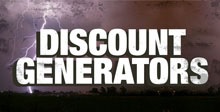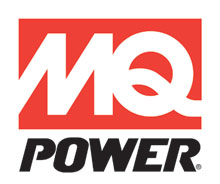Hurricane Preparedness: What to do During a Hurricane
- By Kelsey Lepperd
- Sep 14, 2016
Alright, you've already prepared your hurricane checklist, but now the hurricane has arrived. You're able to stay in your home, but what do you do?
During any natural disaster, anticipate no power. This means conservation is your number one priority. WIth heavy rains and wind, power lines are incredibly vulnerable. Sometimes you might be without power for hours, and in the worst of disasters, for weeks. Power outages are during strong storms are all inconvenient, but did you know they make up 47% of power loss across the country? The average cost for a homeowner of one power outage is about $1,058.
To conserve power, we have a few tips:
- Keep your refrigerator closed. You fridge can stay cold for up to four hours without power, and your freezer will last up to 48 hours.
- Keep ice in a nearby cooler. You can put dry ice or a block of ice inside the refrigerator or freezer to extend the cold.
- Simplicity is key. Plan some easy-to-make meals ahead of time. You'll probably have to cook by candelight, so nothing extravagant. Make sure you have all the cooking utensils you need.
Natural disasters can be emotionally stressful times. When you'd rather take a walk, you might be cooped up in the house for hours in close quarters. Making sure you have activities will help everyone in your home stay occupied and calm in this otherwise chaotic time. A few easy entertainment activities include:
- Word games
- Card games
- Read a new book or magazine
- Crafting
- Finally start that new work out plan
- Plan a living room campout
Communication is especially important in the midst of a hurricane. You want to know where your family is, and more importantly, that they're safe. Remember that first lesson of conservation? The same thing applies to phone usage: unplug, power down, and emergencies only.
Did you know? The average phone life is 12 hours, and the average person checks their phone 85 times a day. So what's keeping them tied to their phone? The top 6 phone activities include sending/receiving messages, searching for information on the web, using navigation or maps, updating social networks, streaming music, and playing online games.
- Before the power goes out, make sure you unplug all of the major electronics and appliances in your house. If you don't, you're at risk of repairing those devices affected by electrical surges.
- Only use your phone when absolutely necessary. Otherwise, make sure your WiFi is turned off, and the phone stays in airplane mode. This will help your phone maximize battery life.
- Make calls only for emergenices to avoid tying up the phone lines for emergency responders.
Portable generators can make your life easier during any natural disaster. The average generator can last about 9-11 hours at a 50% load with a 7 1/2 gallon fuel tank. The right portable generator can be used to power your most useful devices, like a refrigerator, freezer, well pump, security system, or microwave. While running your portable generator, you can power multiple appliances based on their unit size and wattage. It's important that you don't overrun your generator with too many appliances. Before purchasing a portable power solution, use a wattage calculator to determine just how much power you need.
Portable Power Safety Tips:
- Run your generator outside in a well-ventilated area
- When your generator is on, keep it away from open windows and garages
- Keep a carbon monoxide detector in your home. This will alert you to any emissions that possibly sneak into your home
- Keep extra gas on hand, and purchase gas before a natural disaster












